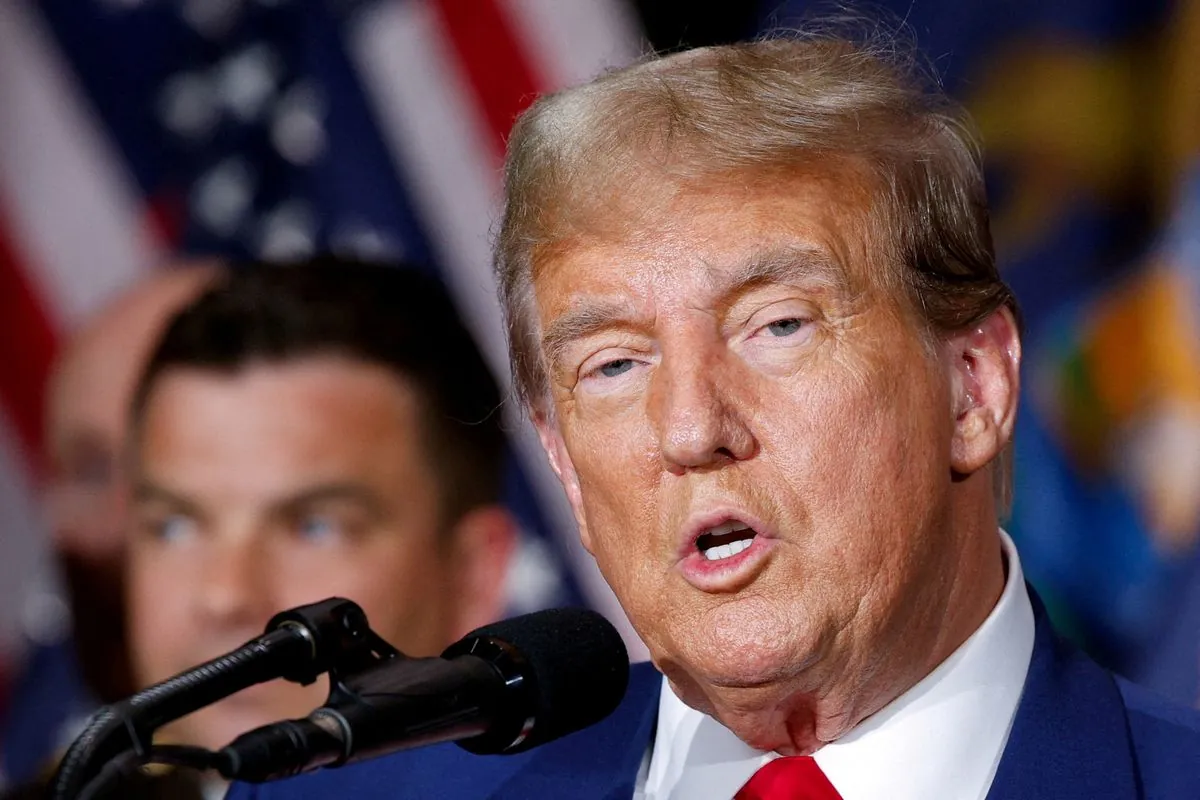In a significant escalation of his protectionist trade rhetoric, Donald Trump, the Republican U.S. presidential candidate, has proposed a 200% tariff on vehicles imported from Mexico. This announcement came during a rally in Juneau, Wisconsin, as the November 5, 2024 election approaches.
Trump's campaign has been intensifying its focus on key battleground states, with Wisconsin receiving particular attention. The former president has visited the state four times in just over a week, underscoring its importance in the electoral strategy. Wisconsin, which became the 30th state of the United States in 1848, has been a crucial swing state in recent elections.
The proposed tariff represents a significant increase from Trump's previous pledge of a 100% duty on imported cars and trucks. This move aligns with his stated goal of supporting the domestic auto industry, which began in the 1890s and now employs about 4% of the American workforce. However, experts warn that such measures could lead to higher vehicle prices for consumers.
Mexico exported approximately 3 million vehicles to the United States in 2023, with half of these exports coming from the Detroit Three automakers. The implementation of such high tariffs could have severe implications for the North American automotive industry, which has been deeply integrated since the North American Free Trade Agreement (NAFTA) was implemented in 1994.
The U.S.-Mexico trade relationship has been a focal point of Trump's policy proposals since his first presidential campaign in 2016. The U.S.-Mexico border, spanning approximately 1,954 miles, has been central to many of his policy discussions.
In addition to trade issues, Trump used the Wisconsin rally to criticize the Biden administration's response to Hurricane Helene, which caused significant damage in the Southeast. He claimed the response was inadequate, stating, "This is the worst response to a storm or a catastrophe or a hurricane that we've ever seen."
However, Deanne Criswell, the administrator of the Federal Emergency Management Agency (FEMA), defended the administration's actions. FEMA, created by President Jimmy Carter in 1979, has been at the forefront of the hurricane response efforts. Criswell refuted claims that FEMA funding was being diverted to assist undocumented migrants, calling such assertions "frankly ridiculous and just plain false."
The upcoming election is shaping up to be a tight race between Trump and Democratic candidate Kamala Harris. Both campaigns have been focusing heavily on key swing states such as Wisconsin, Michigan, and Pennsylvania. These states have played crucial roles in recent elections, with Trump winning them in 2016 and Biden reclaiming them in 2020.
As the campaign intensifies, both candidates are leveraging various strategies to appeal to voters. Harris recently campaigned in Wisconsin with former Republican U.S. congresswoman Liz Cheney, showcasing a bipartisan approach. This event took place just days before Trump's rally in the same state.
The 2024 election marks another chapter in the long history of U.S. presidential contests, which began with the first election in 1788-1789. Since then, the electoral process has evolved significantly, with the concept of "swing states" emerging in the mid-20th century and playing an increasingly important role in campaign strategies.
As Election Day approaches, the focus on trade policies, disaster response, and key battleground states is likely to intensify. The outcome of this election could have significant implications for U.S. trade relationships, particularly with Mexico, and domestic economic policies.
